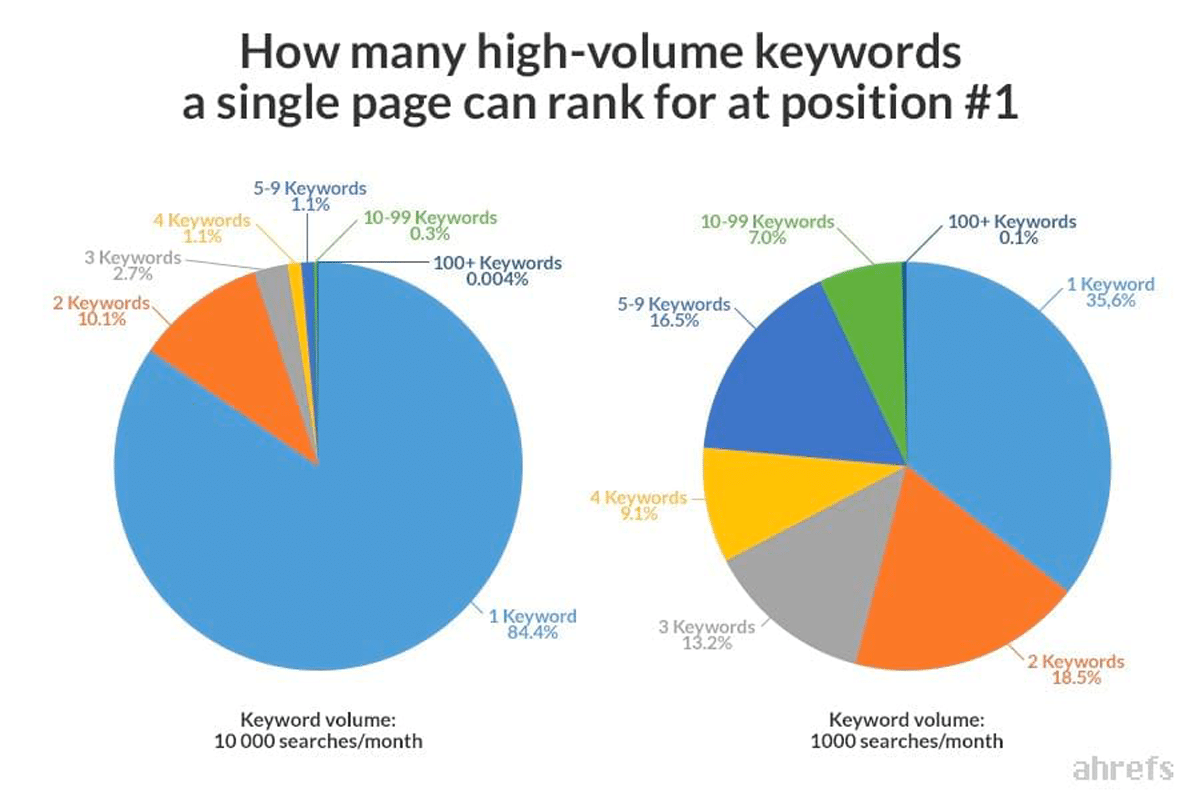I can say with certainty, that:
“If beauty is in the eye of the beholder, content greatness is in the eye of the reader.”
And, if professionally weaved informative and emotive words appeal to the emotion of the humans, carefully sprinkled keywords and semantically-related phrases appeal to the senses of the blind search engine crawlers. While the former is the strength of a plain content writer but a combination of the two is the forte of the SEO writer.
In this article, I am going to give you 3 powerful attributes of a top-notch SEO content writer in the UK.
This account is extensive, so here is a rapid index for you to hop around at your convenience:
• The Need for a Stellar SEO Content Writer UK-Based
• Caliber 1. Deep Immersion with the SEO History
• Caliber 2. Conversant on the Present and Future of SEO
• Caliber 3. Polymathic Tendency
All is set? Let’s jog.
The Need for a Stellar SEO Content Writer UK-Based
But hold back, before I give you the attributes of a good content writer, do you know how important content writing is to SEO?
In my article on the top SEO Company in UK, I have discussed extensively the benefits of SEO on your business as it contributes an additional 40% to your revenues, bottom line that would continue to go down the drain if you decide not to avail the services of the best SEO agencies.
With an excellent SEO writer, your online content is assured of:
• Serving a purpose.
Google rewards web content that serves a purpose and pushes it up the ladder of search results. Proportionately, it can detect trash contents and bury it deep down the search result hierarchy.
Towards this end, you need the help of a competent SEO writer who can write engaging content that is truly appealing to the eyes of the target audiences.
• Strategic keyword to plain word combination.
Keyword stuffing is already a thing of the past, if not a taboo, in SEO nowadays.
In fact, the August 3, 2020 update of the Also Rank For Study conducted by the popular SEO site ahrefs.com reveals that pages having the least number of keywords rank higher.

Study shows that ranking for 2–3 keywords with over 1,000 searches per month is quite common.Image courtesy of ahrefs.com.
If you are looking for an SEO writer today, you need to find a guy who is witty enough to pick the right kind and volume of keywords and semantically-related words that search engines would consider as highly relevant to the content.
• Long-Form Content
Back in the good, or bad, old days of the 2000’s first decade a content marketing practitioner just optimize content entirely for keywords, funneled those keywords into short posts to make the content as fast as he or she can.
But it is not the case nowadays. Though some writers vigorously argue that shorter attention span, or the length of time for which a person can concentrate mentally on a particular activity like reading, statistics show that the longer your content is the better. In fact, contents having more than 2,000 words are the occupants of the top-10 in the Google organic results.
You know why?
Love in the making. Search engines love long-form content as it shows insight and authority. Longer questions on the minds of the reader about a topic demand, of course, longer answers.
Brand authority. Longer content enhances brand authority. Naturally, you search on Google to look for advice on an important life-changing question. Would you stay on pages having just a few paragraphs? Of course, you take the wisdom from a long post complete with all the information that you need. As a consequence, a relationship born out of trust shall exist between you and the web content writer and the website as a whole.
Shareability. Longer content articles improve the chance to be shared on social media. Numerous studies reveal that online content having 1,000 words or more got substantial social media shares. You as a reader after being carried away by the flow of information coming from a long article, sometimes without you knowing, hit the share button so your friends and family members can also get the same amount of information that you have just acquired.
Extra conversions. Long-form content is proportionate to higher revenues. Studies on the subject show that the longer the content, the higher the user experience quality is resulting in an enhanced conversion rate. As you continue to read an informative article, coupled with the enhanced website browsing experience, your trust in the site is slowly building up enough for you to decide to buy their product.
More ranking opportunity. Lengthier posts give you, as the writer, the leeway to enhance your website content writing style by putting in the right amount of keywords and semantically-related words which the Googlebot and other spiders love to crawl and send indexing signals on the relevance of your content to the query thereby pushing the web page up the ladder of organic search result.
Likelihood to attract backlinks. Again in the first decade of the 200s, you can launch a backlink campaign through initiatives that were allowed before, but now closely watched and heavily penalized by Google. Gone are the days when link swapping, link buying, link baiting, article directory submission, forum posting, guest posting are prevalent. To date, a backlink is given to you out of trust by a webmaster or owner who happens to read and love your article so much. Such a linking act shall be counted by Google as an endorsement that can help push your site’s ranking to the top.

Contents with 3000 Plus Words Gets More Traffic, Shares and Backlinks. Image courtesy of SEMRush.com
Having said that, if you are one of the business owners who enjoy reading this post, you need to find an SEO writer who knows by heart his or her ethical obligation to ensure that readers like you would truly enjoy while going over a long-form article.
Have I tickled your mind on the qualities of an excellent UK-based SEO content writer that you need to hire? Hold your breath!
3 Rock-Solid Qualities of an SEO Content Writer UK-Based
Caliber 1. Deep Immersion with the SEO History.
This portion is relatively long and detailed. I advise you to sit back, relax, or have a coffee break.
Ready, let’s dive-in!
George Santayana, the Italian philosopher, essayist, poet, and novelist, in his book The Life of Reason: Five Volumes in One aptly said:
“Those who cannot remember the past, are condemned to repeat it.”
The quote sits well with the kind of SEO writer that you need to hire. For your content to be 100% Google search engine-compliant, your writer needs to have enough body of knowledge about the history of SEO. In so doing, he or she would find ways to continue and enhance good practices and avoid the bad ones.
But between a writer who learned SEO history through research and a man or woman who has had walked through the Search Engine Optimization milestones himself or herself, whom would you prefer?
Candidly, writers belonging to the former category use their brain in creating contents that appeal to your mind. But, content writers who count themselves as among those in the latter classification combine their heart and brain in crafting articles that puncture your emotions through and through.
But, I am sure that a question is popping out of your mind right now: How would I know on what category an aspiring writer belong? Well, the question sounds difficult to answer but in reality it is not. You just need to be keen enough to observe the way how he or she relays the SEO story.
But before going further, let me briefly summarize what Search Engine Optimization is all about. This is a good way to start where I can have a place to anchor my story and where you can stand firmly while hearing to my narratives.
What is Google algorithm?
It is like filing cabinets where files are stored.
Say for example your boss asks you like this: Will you please bring me the files about web development company uk?
Naturally, you being the file keeper approach the filing cabinet. Quickly go over for the best-systematized file available about the subject being asked for, pick it up, and hand it over to your boss.
By analogy, your boss is the searcher while you being the file keeper is Google.
The file cabinet is the Google Index.
Without our knowledge, Google takes pictures on all online content available on the web and store it in the index cabinet. But the capacity of Google is only limited to taking pictures and store it as is. It is the job of the SEO practitioner to systematize the structure of the content before, during, and after publication on the website.
See how significant the role of SEO is in the entire search process?
In effect, an algorithm is a system wherein Google easily picks up the file of websites a few seconds that a query is typed in the search box. Google ranks the website using a combination of algorithms and employing many ranking signals.
Google updates the search engine once in a while through its algorithms resulting in constant changes in the rankings day in and day out.
What is PageRank?
Named after the Google co-founder Larry Page, Page Rank is a toolbar having a scale of 0 to 10. The number in the scale represents the value of a particular web page. Zero means the page has no authority and credibility. Meanwhile, 10 denotes being the most authoritative and trustworthy page on the face of the web. Every page has a page rank while the home page has also its page rank which is dependent on the rank of each inner page.
Web page authority is determined by the websites that endorse a specific content through a backlink. In effect, as your page’s backlink grows, so grows the authority of that page. Meanwhile, the authority of the website as a whole is proportional to the authority of its inner pages plus the number of backlinks to the home page.
On the other hand, the trustworthiness of a single page is determined by the number of keywords within the content that match the search term written by the user on the search box. The more keywords in a page, the more authoritative it is. On the other hand, the trustworthiness of the whole website is commensurate to the number of pages with the right amount of keywords being published regularly on the site. Hence, sites publishing tons of content daily, as against those sites publishing weekly, are considered as the most trustworthy sites.
It is worthy to mention that the value of the Google adsense is dependent on Page Rank. The higher the Page Rank, the higher the revenue of website owners.
Because publishers get 68% for every click on Google adsense with the rest being retained as revenue by Google, you can just imagine how much money goes to the pocket of top rank site owners.
Having said that, I’ll walk you through the most controversial milestones in the history of SEO plus the latest updates and leave you to scan over the other details at the infographic provided below.
• 2010 and Before:
The years before 2010 were considered as the golden era for SEO.
But the lure of money had motivated some tech-savvy SEO practitioners during that period to crack at the Page Ranking code and made some bold moves to manipulate it.
To get past the criteria on site trustworthiness, they:
- Invent the auto- writer capable of finding synonyms for a given word or phrases;
- Literally steal contents from other sites;
- Combine at least 5 copied contents and feed it to the auto-writer and spin it out to create new content;
- Add a combination of simple and long-tail keywords in the newly created content;
- Feed the new contents to the auto-publisher following a publication schedule.
And voila, Google search engines considered the website as trustworthy!
On the other hand, to manipulate the criteria on authority, the witty SEO practitioners invented their own “link web system” in the following manner:
- Create website A with a specific home page target keyword based on the above modus operandi;
- Create website B with related target keyword and set-up anchor text linking to website A;
- Create website C using related target keyword and set-up anchor text linking to website B;
- Use the same website creation procedure until the creation of website Z;
- Website A sets-up anchor text that links to website Z;
- Create another round of websites A to Z using another separate and distinct target keyword with links being swapped between and among web pages coming from different sites of the same link web network;
- Devise the automated backlinking tool and install in every web page;
- Use link signature in forum and blog commenting to receive backlinks.
And hurrah, Google considered the sites as authoritative!
What’s the result? Page Rank for such sites involved in dubious campaigns went higher and the unscrupulous SEO practitioners were literally laughing at the bank.
Wow, money was truly flowing like honey for the dirty operators, right?
But were they sweating out of their ventures? The answer is a big no as they just outsourced the dirty jobs from lowly paid virtual assistants usually coming from third world countries.
But what happened to the ethical SEO practitioners out there?
Well, they vigorously protested the black hat moves at the start. But in a consumerist society where survival of the fittest is the norm, majority of them capitulated in the end and hopped onto the bandwagon!
• 2011:
For the unscrupulous SEO practitioners, there seemed to be no end in sight in milking out of the Google adsense.
But, enter the series of Panda Algorithm Updates deployed by Google that has literally shaken the SEO world. It vigorously tracked and penalized websites with thin and copied contents. Page Rank was then removed from the toolbar.
And the effect? Thousands upon thousands of sites in the entire web were affected by the sweeping Google reforms. Those who were laughing at the bank were rendered penniless overnight.
With the Panda updates wreaking havoc to unscrupulous sites, the sites who refused to ride on the bandwagon like travel blogs, have weathered the storm and reaped the fruits of Google adsence in its pure and ethical form
• 2012:
Adding insult to the injury, Google unleashed another storm called the Penguin Algorithm Updates that hit the Panda algorithm survivors hard. The said algorithm vigorously checked and penalized overly optimized websites like keyword stuffing, link spamming, anchor text over- optimization and other black hat initiatives.
In effect, webmasters of affected sites were in a panic mode as they were sent a customized message from Google console to take down unworthy backlinks in their websites or face serious consequences. Against the backdrop of them previously laughing out loud at the bank in 2010, they were literally begging to the webmasters of the backlink sources to take down the link. But the begging sessions were effective for only a few manually acquired links. But for the resultant links of auto-link building tools, the task was truly insurmountable.
Fortunately, when the deadline almost came to an end, Google released the Link Disavow Tool which is tantamount to a general amnesty program for rebel returnees. In it, webmasters need to input the links that they don’t want to be counted in their favor and say a few words in the endorsement like: “These links are not mine, they were just built by my competitors to hurt my reputation,” etcetera.
• 2013:
Google released a new algorithm dubbed Hummingbird Algorithm applicable to all web stakeholders.
The new algorithm came at a time that a conversation search was launched in the same year, wherein users can just talk to a mobile gadget like a smartphone and table about their query.
Like an army bouncing back from defeat, Google seemed to have acquired tremendous power to comprehend and precisely interpret what you said on voice search and what you typed on the search box. With the hummingbird, the true search intent of the user is given premium.
More importantly, the keyword in the query should match with the content.
• 2015:
Google released the Mobile-Friendly Update that penalized websites that require mobile users to zoom in before access. Subsequently, it released the Mobile-Friendly Testing site so mobile users can test the mobile-friendliness of a site before actually logging in. Mobile version webpages were indexed first by Google over the non-mobile version.
• 2016:
Possum Update was released by Google that affects local searches. Before the update, if your website is out of the city limit, it won’t show up on search results. But with the update, local searches became diversified and your site can still appear in local searches in a particular city even though your location is far away from that city. Your SEO guy just needs to do something about it.
• 2017:
Intrusive Interstitials Update was introduced by Google penalizing sites that introduce pop up ads to mobile devices that users found it difficult to put off.
The https URL is considered by Google as secured sites.
• 2018:
The search giant released the Medic update hitting alternative medicine sites as Google don’t want to see the scenario that users buy their product because their website was considered as trustworthy and authoritative.
• 2019:
BERT (Bi-Directional Encoders Representation from Transformer) Update was released by Google that showcased its natural language processing model. With the update, Google easily knows the context of the search term.

Infographic on the History of SEO. Image courtesy of blog.copify.com
Whew, now that I have walked you through the history of SEO, I suggest that you stand up, stretch out, breath fresh air from outdoor, and resume reading when you feel that you’re ready to deal with the present trend and future scenarios of SEO and how you and your writer can play about with it.
Ready? Let’s jog!
Caliber 2. Conversant on the Present and Future of SEO
Mahatma Gandhi, world renowned Indian lawyer, anti-colonial nationalist, and political ethicist ones said:
“The future depends on what we do in the present.”
While SEO Content writers need to draw lessons from the past, they need to focus on the present by figuring out how to play, in the most ethical way, the current Google algorithm which is the lifeblood of their profession.
And I am referring to the Latent Semantic Indexing (LSI) which, according to my gut-feel, is the backbone of Google’s BERT Update.
According to one of the white papers produced by the College of Computer Science and Engineering of the Michigan State University:
“Latent Semantic Indexing is a technique that projects queries and documents into a space with latent semantic dimensions.”
Simply put, it is a technique that estimates or forecasts queries and documents into an area or expanse in which its hidden, concealed or figurative meaning can be measured.
Sounds too technical, right?
To understand it better, I owe you an explanation on who developed or invented the technique.
According to the website lsi.argreenhouse.com, as quoted by Slideplayer, Latent Semantic Indexing was developed at Bell Communications Research, Inc. (Bellcore), now known as Tecordia, in 1988 and was patented in 1989 by a group of researchers led by Scott Deerwester. The research company was created from Bell Labs which is renamed from the original Volta Laboratory of Alexander Graham Bell.
Now, a quick step back to our elementary science days, who is Bell by the way? He, of course, invented the telephone. I am saying this because the company culture is defined by its owner. Even though the owner is long gone, his principles are being imbibed into the next generation of employees and company stakeholders. With the telephone being one of the products that revolutionized the world and made life easy for the people, no wonder that LSI developed by the descendants of Bell would be here to stay as game-changer in the data industry.
The Idea of Deerwester and his co-researchers is that:
“We would like a representation in which a set of terms, which by itself is incomplete and unreliable evidence of the relevance of a given document, is replaced by some other set of entities which are more reliable indicants. We take advantage of the implicit higher-order (or latent) structure in the association of terms and documents to reveal such relationships.”
The assumption is that co-occurrence says something about semantics: words about the same things are likely to occur in the same contexts.
If we have many words and contexts, small differences in co-occurrence probabilities can be compiled together to give information about semantics.
In the latent semantic space, a query and a document can have high cosine similarity even if they do not share any terms – as long as their terms are semantically similar.
LSI is applied mainly for information retrieval, relevance feedback, information filtering, cross-language retrieval, and matching people with documents. In the latter application, LSI has been used to return the best matching of people rather than documents. In this scenario, people are “represented by the articles they had written”. In one application developed by Furnas et al, known as the Bellcore Advisor, a system was developed to find local experts relevant to users’ queries. A query was matched to the nearest documents and project descriptions and the authors’ organization was returned as the most relevant internal group.
Truly, search engines nowadays are dependent on LSI. The capacity of online content to rank on top of organic search results hinges heavily on the expertise of the SEO content writer. Those who can easily spot words that are semantically-related to the target keyword and witty enough to sprinkle it in strategic areas of the content to attract search engine crawlers shall emerge as the first among equals.
By then, a client-company could have a solid long-term foundation that can withstand and weather any SEO-related catastrophe like Google algorithm updates, whatsoever, in the future.
Caliber 3. Polymathic Tendency
A good SEO content writer need not be a polymath, or a person who excels across a diverse range of areas, but has an inclination to be one.
• Curious and Open to Learning
SEO writers of this caliber simply want to learn about everything that interests them. Even though their expertise is on search engine optimization that primarily involves SEO content research, SEO content writing, and SEO copywriting, they would be more than willing to be assigned unrelated jobs like a press release and product description writing including the effective presentation of product descriptions during press releases.
Likewise, they can write about website-specific issues like measures to push your website content up to the top of the search engine results pages (SERP) without spending a dime on Google ads. Moreover, they can write with ease on the ideal structure of landing pages as well as cookies to improve on a particular landing page.
Further, they can be assigned jobs that require engagement with a content writing agency based in West Yorkshire or any part of the United Kingdom. Furthermore, they would happily blend with a particular content writer or digital content writer or the entire pool of content writers of the said agency.
Finally, they have no qualms if tasked to interview the top management of the London-based Click Intelligence Digital Marketing Agency and get any information that could help enhance the performance of your company.
• Cultivate Multiple Passions and Interests
Do away with content writers who claim to be specialists as they will happily live and breathe their area for years on end. Find someone who has many different areas they are interested in exploring further. Such kind of writer would be happy and passionate if one day, you tell him or her to write anything about jobs like job alert or job alerts, job search, job title, job type, writer jobs, browse jobs, career advice, or any related subject. Afterward, you will find the said person to be ecstatic if assigned a writing job about graphic design and the characteristics of a good graphic designer.
• Don’t Worry About Being Perfect.
Writers belonging to this category don’t need to be the top in their field. They just have to be better than average. They are more than happy to be assigned content writer jobs in collaboration with a freelance writer or freelance copywriter. Further, they would perfectly blend with in-house content writers or with freelance content writers as well as freelance copywriters, web content writers or, any other type of UK content writers for that matter.
• Set Realistic Goals and Follow Through.
Writers of this brand are very hardworking with extraordinary levels of productivity. With the specific target audience in mind, they always find time to craft doable content strategies and employ a specific content strategy for particular written content.

The foundation in this Anatomy of Content Marketing shows the preference of consumers on articles rather than ads.Image courtesy of taxoo.
Conclusion:
Studies reveal that 70% of consumers prefer getting to know a company via blog articles rather than ads. Your agency’s survival in the undeniably cut-throat business competition relies heavily on high-quality content of your site that serves a purpose. A great content writer expertly connects to human emotions through the 5 senses. But, a stellar SEO content writer has extrasensory perception to communicate with search engine crawlers on the semantically-related words that they love most. If your company engages a writer of such caliber, you are working with the best SEO content writer UK has ever produced.
Interested to work with such writer? Let’s talk.







Leave A Comment